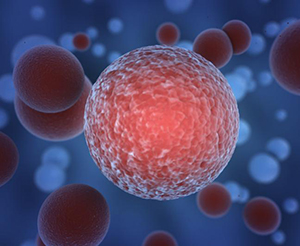Houston, Dec 13: Intermittent fasting may inhibit the development and progression of the most common type of childhood leukaemia, a new study has claimed.
The strategy is not effective, however, in another type of blood cancer that commonly strikes adults, researchers said.
"This study using mouse models indicates that the effects of fasting on blood cancers are type-dependent and provides a platform for identifying new targets for leukaemia treatments," said Chengcheng Zhang, associate professor at University of Texas Southwestern Medical Centre in the US.
"We also identified a mechanism responsible for the differing response to the fasting treatment," he added.
Researchers found that fasting inhibits the initiation and reverses the progression of two subtypes of acute lymphoblastic leukaemia, or ALL - B-cell ALL and T-cell ALL.
The same method did not work with acute myeloid leukemia (AML), the type that is more common in adults.
ALL, the most common type of leukaemia found in children, can occur at any age. Current ALL treatments are effective about 90 per cent of the time in children, but far less often in adults, said Zhang.
The two types of leukaemia arise from different bone marrow-derived blood cells, he said.
ALL affects B cells and T cells, two types of the immune system's disease-fighting white blood cells. AML targets other types of white blood cells such as macrophages and granulocytes, among other cells.
In both ALL and AML, the cancerous cells remain immature yet proliferate uncontrollably.
Those cells fail to work well and displace healthy blood cells, leading to anemia and infection. They may also infiltrate into tissues and thus cause problems.
Researchers created several mouse models of acute leukaemia and tried various dietary restriction plans.
They used green or yellow florescent proteins to mark the cancer cells so they could trace them and determine if their levels rose or fell in response to the fasting treatment.
"We found that in models of ALL, a regimen consisting of six cycles of one day of fasting followed by one day of feeding completely inhibited cancer development," he said.
At the end of seven weeks, the fasted mice had virtually no detectible cancerous cells compared to an average of nearly 68 per cent of cells found to be cancerous in the test areas of the non-fasted mice.
Compared to mice that ate normally, the rodents on alternate-day fasting had dramatic reductions in the percentage of cancerous cells in the bone marrow and spleen as well as reduced numbers of white blood cells, he said.
"In addition, following the fasting treatment, the spleens and lymph nodes in the fasted ALL model mice were similar in size to those in normal mice," he said.
"Mice in the ALL model group that ate normally died within 59 days, while 75 per cent of the fasted mice survived more than 120 days without signs of leukaemia," he said.
The study was published in the journal Nature Medicine.








Comments
Add new comment